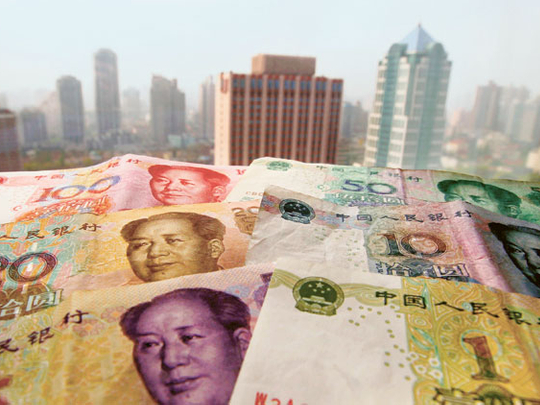
China's $3.3 trillion (Dh12.1 trillion) of currency reserves are a nice thing to have when you want to polish your image. Even if money can't buy you love, it sure can buy lots of positive buzz.
The most-populous nation has been throwing tens of billions of dollars at its prestige deficit for a decade, all part of an effort to enhance China's soft power, something of which the US, for all its crises, has a surplus. Why else would Chinese dissidents head to US shores, or embassies, for shelter? Why do so many wealthy Chinese, and government reserve managers, see the dollar and the US legal system as a haven?
The priciest public-relations expenditure was the 2008 Beijing Olympics, which by some estimates cost $40 billion. The country has financed roads in Brazil, bridges in Zambia, power grids in Cambodia and mining rigs in Uzbekistan. It established Confucius Institutes for Chinese language and culture on 75 US college campuses. It started CCTV America to raise its profile.
The charm offensive served the Chinese brand well for a while. Its timing was perfect. China skillfully exploited America's distractions and travails after the September 11 terrorist attacks. When Europe hit a debt wall 10 years later, it turned to Beijing for help, not Washington. When Wall Street needed capital injections at the height of the financial crisis, it knocked on China's door.
Prestige enhancement
So it's perplexing, then, to watch China squander much of the soft power it accrued at great expense over many years in just a few months. The rate at which China is blowing an absolute fortune invested in prestige-enhancement makes Jamie Dimon's $2 billion loss at JPMorgan Chase & Co look trivial. And it's all a bad omen for China bulls betting on smooth, 10 per cent annual growth rates in the years ahead.
The world is used to Chinese bubbles. Only, the latest one isn't in stocks, real estate or rare-earth metals, but bad headlines: the Bo Xilai scandal, the diplomatic gymnastics over Chen Guangcheng, propaganda attacks on US Ambassador Gary Locke, tossing out Al Jazeera's lone Beijing correspondent and bullying the Philippines over a cluster of rocks in the ocean.
China can't seem to help itself. The reverberations reach the highest levels of government, reflecting a deficit of confidence in Chinese leadership. What a contrast to a few years ago when China's elites seemed to foster certainty and stability.
There's an air of desperation in many of the unforced errors China is making. It's a stark reminder that the evolution of China's economy has raced far ahead of its opaque political system.
The Bo case is by far the biggest and most-telling political scandal the Communist Party has endured in decades.
The Bo imbroglio gets at everything China doesn't want foreigners chewing over, such as the obscene wealth of politicians and the bumps that seem to be accompanying this year's leadership change.
All of it suggests that Beijing is struggling with its role in the spotlight when the world expected it to act like a mature and savvy power.
Many recent events suggest otherwise. Take the case of Melissa Chan, who had reported from China since 2007 for Al Jazeera English. China refused to renew her visa. It's widely suspected the denial was retaliation for the network's stories on secret jails and forced abortions.
Self -censorship
Will journalists have to engage in self-censorship to avoid deportation? Getting journalist visas, meanwhile, has become quite the ordeal for those eager to do actual reporting on China.
Rising tensions in the South China Sea are also telling. Imagine how China will respond to more critical territorial disputes with Japan, South Korea and Taiwan. And China wonders why its Asian neighbours seek to balance its influence by cozying up to the US.
These aren't the actions of a confident, secure power. What the Communist Party doesn't understand is that for the country to accrue soft power it should close the cheque book. Then it needs to treat its people and its neighbours with respect, and let all the world look on as it does.
— Bloomberg












